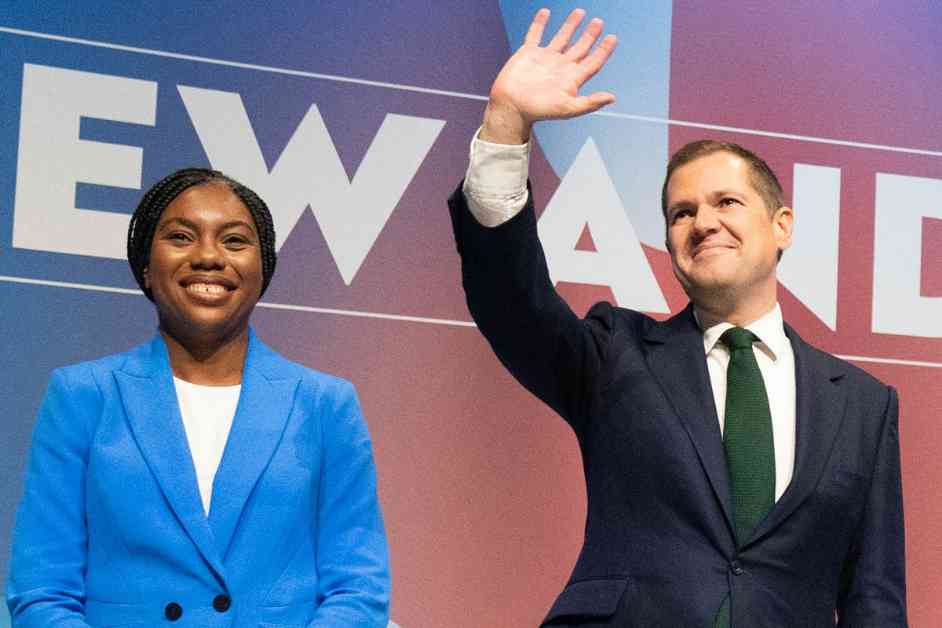The Conservative Party found themselves in a tough spot following Labour’s Budget announcement, as the ongoing leadership race left them unable to provide detailed comments on the financial plan. The party spokesperson refrained from making any significant remarks on the Budget, citing the need for time to think through the implications of the fiscal event.
The leadership contest, set to conclude on Saturday with either Robert Jenrick or Kemi Badenoch emerging as the winner, has hindered the party’s ability to criticize Labour’s Budget effectively. This delay in appointing a new leader has left the Tories without a strong voice to challenge the £40 billion worth of tax rises proposed by Chancellor Rachel Reeves.
While Rishi Sunak criticized the government for embarking on a significant borrowing spree, his outgoing position as opposition leader limits his influence on party policy. Both potential future leaders, Jenrick and Badenoch, expressed their concerns about the Budget, with Badenoch highlighting the increase in taxes, borrowing, and lower growth under Labour’s economic plan.
In response to Reeves’ Budget, Jenrick referred to her as the “gloom and bust” chancellor, accusing Labour of conducting the biggest heist in modern history through the substantial tax hikes proposed. He emphasized the burden these tax increases would place on British households, raising questions about the government’s commitment to its promises of not raising taxes.
Reeves justified her Budget by emphasizing the need to invest in public services and announced a significant increase in the NHS health Budget. The implementation of tax hikes on employers’ national insurance contributions, stamp duty on second homes, and the removal of VAT exemptions on private school fees were among the notable changes introduced in the Budget. Additionally, a new duty on vaping liquids was announced as part of the government’s efforts to address the £22 billion deficit in public finances.
Despite these tax increases, Reeves decided against extending the freeze on income tax thresholds beyond 2028 and opted not to raise fuel duty, providing some relief to taxpayers. The Budget marks a significant milestone in the government’s fiscal policy, aiming to address the challenges posed by the current economic landscape while investing in key public services.












